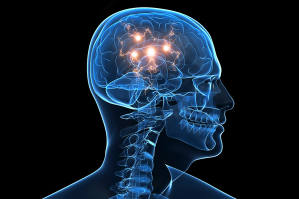
A man in Russia has volunteered to be the world's first patient for a head transplant. However, some people have speculated that this may be an elaborate marketing stunt for a video game.
According to Neal Colgrass of Newser, 30-year-old Valery Spiridonov, a computer scientist diagnosed with Werdnig-Hoffman disease, would be the first patient in the world to have a head transplant. The procedure would be performed by Dr. Sergio Canavero.
"I can hardly control my body now," Spiridonov said. "I need help every day, every minute. I am now 30 years old, although people rarely live to more than 20 with this disease."
The Italian doctor told Debra Goldschmidt of CNN that he plans to put an entire head on a new human body. He termed the procedure as HEAVEN, an acronym for head anastomosis venture; according to CNN, anastomosis is defined as "surgically connecting two parts."
"Canavero says he has part of the funding secured, although he says he can't yet disclose where the money is coming from as a condition of the funding," Goldschmidt wrote. "He's also taking the 2015 layman's approach with crowd funding and book sales."
According to CNN, Canavero hopes to get approval from the American Academy of Neurological and Orthopedic Surgeons at its annual conference in June. If he secures it, he plans to put together a staff of 150 nurses and doctors to complete the procedure some time in 2017.
"I say two years is the time needed for the team to reach perfect synchronization," Canavero speculated.
Canavero justified his procedure to CNN by pointing to Dr. Robert White, who transplanted one monkey's head to another monkey's body back in 1970 at Case Western Reserve University School of Medicine. However, despite the fact none of the monkeys survived the procedure more than 24 hours, Canavero insists that advances in science and medicine have eliminated those problems.
"[It's] a 45-year-old reference in a primate and there is no evidence that the spinal cord was anastomosed functionally," Dr. Hunt Batjer, president-elect of the American Association for Neurological Surgeons, said.
Batjer added that it would be a great leap to go from brain survival to restoring body function. He told CNN that Canavero's procedure was impossible.
"I would not wish this on anyone," Batjer quipped. "I would not allow anyone to do it to me; there are a lot of things worse than death."
Arthur Caplan, Ph.D., director of medical ethics at NYU Langone Medical Center, told CNN that it was just a public relations stunt. He thought Canavero was "nuts."
"It's not like you can unscrew your head and put it on someone else," Caplan said.
Luke Edwards of Pocket Lint appeared to reinforce the notion that the head transplant was a public relations stunt. He speculated that it was all related to Konami's upcoming video game due out in September, "Metal Gear Solid V: The Phantom Pain."
"Dr. Sergio's procedure, dubbed 'Gemini' was submitted as a scientific article on 29 March 2013, two days after Metal Gear Solid V was revealed," Edwards wrote. "Gemini were characters in Metal Gear Solid who, you guessed it, had cybernetic heads."
Edwards added that the patient's name was eerily similar to "the name of a game development supervisor" at Konami. He noted that the TED event held by the Italian doctor was called TEDx Limassol.
"This is an anagram for Solid Metals - bit of a stretch there we know," Edwards wrote. "What's more compelling however, was the logo used at the event which says: 'Everything you know is wrong.'"
Edwards also looked at Canavero's book, which also had strange coincidences.
"Dr. Sergio's book contains chapters with titles including Heaven and Frontiers," Edwards wrote. "Outer Heaven and the Militaires Sans Frontières were private military groups created by Big Boss in the Metal Gear Solid gaming series."
Even if the possibility of head transplants was real, Caplan told CNN that the patients undergoing such a procedure could suffer greatly.
"Their bodies would end up being overwhelmed with different pathways and chemistry than they are used to and they'd go crazy," Caplan said.







